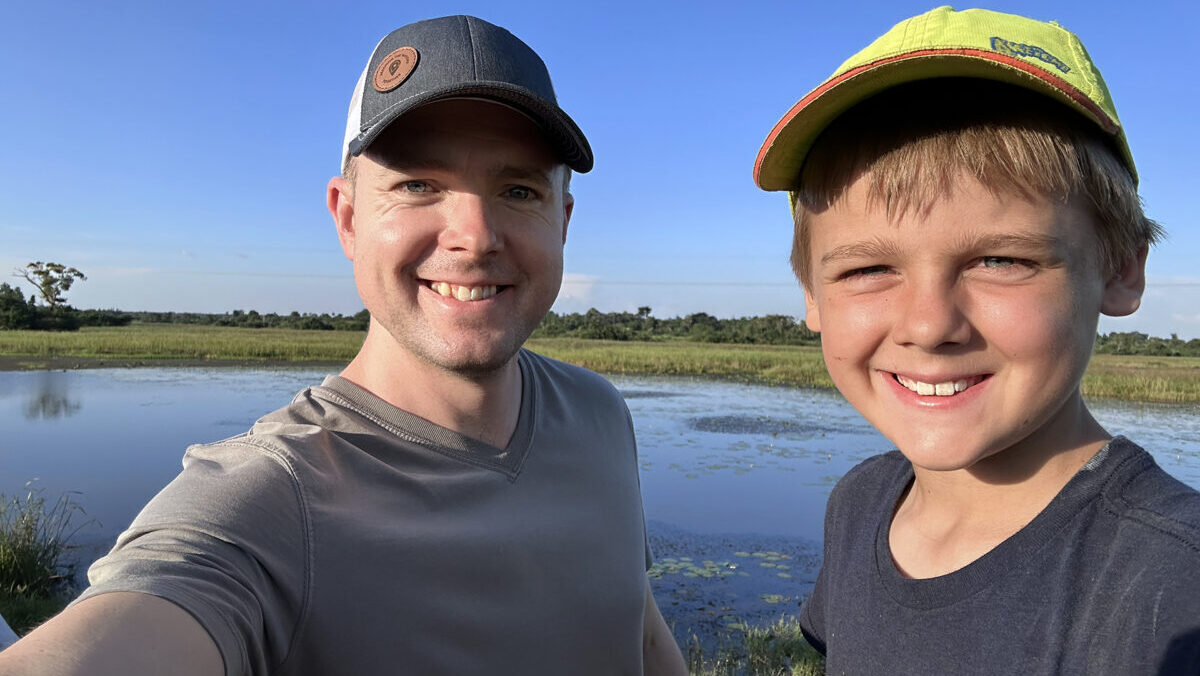Julie Busler sat in the office of a Turkish psychiatrist and stared at the medical forms she was holding. She read the first question, “Do you feel worthless?” and wondered how she should answer. Should she respond with the correct Christian answer or what she knew was the truth?
In that office she knew it was time to answer honestly. If she didn’t she might not be around much longer. Busler circled, “Yes.”
And thus began her journey of hope. The process would be painful, but it would allow her to break through the darkness of mental illness.
Entrenched in darkness
According to the Merriam-Webster online dictionary, “trauma” is defined as “a disordered psychic or behavioral state resulting from severe mental or emotional stress or physical injury.” Many things can cause trauma, and every person copes with it differently. It may be years before its effects surface.
When did trauma, the settling of darkness, invade Busler’s life?
When she was 8 years old her mother received a cancer diagnosis. At that age she didn’t understand all that was taking place. When she was 19 she watched her mother’s “graphic death.”
“It was beyond my ability to cope. It was traumatic,” Busler writes in her new book, “Joyful Sorrow,” published by Woman’s Missionary Union.
In her mind she created a “script of despair,” especially after her father committed suicide several years later.
Busler’s negative coping mechanism “slowly blossomed into life-threatening commands that painted death in my broken brain as glamorous, even courageous,” she writes. “I was in pain, and death would remedy that. My thinking possessed a great paradox.”
While in college Busler had placed her faith in Christ, yet her devastating circumstances created confusion in her mind. In Psalm 88, “A Prayer for Help in Despondency,” she found her identity where the psalmist says “darkness is my closest friend.” She clung to the darkness more and more, feeding it with thoughts of defeat, failure and other lies. Perhaps the biggest lie was that she was a burden to her family and others.
“I was convinced that leaving this life was the courageous choice that would relieve my family,” she wrote.
Surrounded by despair
While she and her husband, Ryan, were serving as Christian workers in Turkey in 2018, Busler realized her life had to change. She knew it was time to share with Ryan the thoughts and struggles resulting from her parents’ deaths.
He recognized she needed professional help and set up an appointment with a local psychiatrist.
The doctor diagnosed her with major depressive disorder and post-traumatic stress disorder. He prescribed medicines and further appointments, but she didn’t get better. In fact she grew worse because the combinations of medication weren’t working. Suicidal thoughts intensified. After another visit with the doctor, it was determined she should be admitted to the psychiatric hospital — a defining moment in her life.
Busler’s stay lasted several weeks, and upon her release she and her family moved back to their home state of Oklahoma. Once they settled into their new home, she was to continue treatment.
Instead she found herself back in a psychiatric hospital after a failed attempt at suicide. This was the second hospital stay within a month.
“Suicidal thinking and planning led to my previous hospitalization while action preceded this one,” she writes in “Joyful Sorrow.”
Embrace truth
While in the hospital Busler felt abandoned and forgotten, along with a sense of shame and overwhelming insecurity. She wondered what people would think when they learned her story. After all, she was a Christian.
She would soon discover hope through a friend who came to visit her. A pastor’s wife who became a mentor soon after Busler married Ryan modeled an unshakable faith and walked with Busler through her difficulties.
While she was in the Turkish hospital Busler was not allowed to have a Bible. In the Oklahoma hospital she still had no access to a Bible. So when another friend, Necoe, shared Psalm 23:4 with her, it was a balm to Busler’s soul. A few hours later a patient repeated the same verse, and her doctor he mentioned Psalm 23 in a conversation.
The light of Scripture was beginning to shine into Busler’s darkness, and she was becoming ready to embrace the truth.
Drawing upon Scripture
Busler said she previously believed if Jesus was enough, medicines, medical treatment and therapists weren’t necessary. It was all about having enough faith.
“This belief became dangerous because it convinced me that no responsibility fell to me in fighting it,” she wrote.
As she studied Scripture, especially Romans, Busler realized she lacked a central component in her healing: repentance.
Another missing element was the work of prayer, Busler admitted. So she studied the Lord’s prayer and went back to the prophet Nehemiah to learn how he led the nation of Israel to pray and watch.
Dealing with mental illness, Busler had to consciously develop the habit of reading and studying the Bible daily, dwelling in it.
“Nothing changed my life like spending consistent time with God in His word,” she wrote. “The lessons I’ve shared within the covers of this book in your hands are the fruit of that discipline.”
She gradually unlearned lies and relearned truth, and her faith grew stronger daily.
“The flesh, which includes the intellect, will and emotions of humans, is completely unable to produce true spiritual life on its own,” she wrote. “Only the Spirit, who works powerfully in and through the words of Christ, can accomplish this. The words of Jesus that are to abide in us have the miraculous ability to awaken the unseen spiritual life deep within you that you long for.”
Click here to learn more about “Joyful Surrender.”








